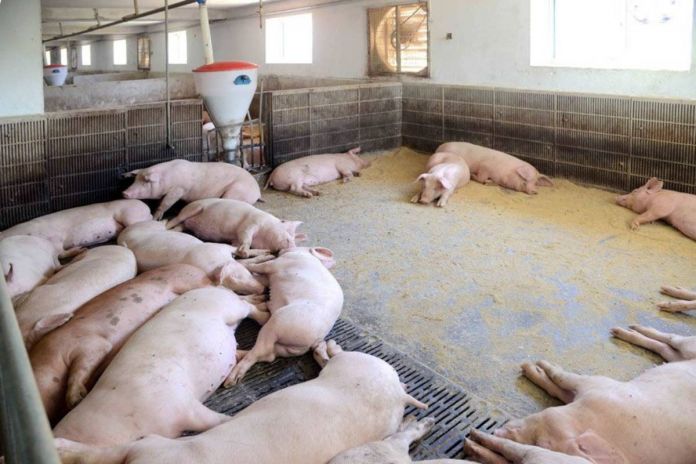The continued spread of African Swine Fever (ASF) in North Korea has made it virtually impossible to buy piglets in local markets, Daily NK has learned.
“You can’t buy a pig even at a premium in the markets nowadays,” a source in South Pyongan Province told Daily NK on Monday. “The swine flu has made it so there are fewer sows to breed piglets.”
The source explained that when ASF strikes a farm the disease kills almost all of the farm’s pigs and leads to miscarriages among sows. This has made it difficult for farms to breed piglets anymore, he added.
In May of last year, North Korean authorities told the World Organisation for Animal Health (OIE) that ASF struck Buksang Cooperative Farm in Usi County, Chagang Province, resulting in the death of 77 of the farm’s 99 pigs. The farm reportedly culled the remaining 22 pigs. North Korea has not alerted the OIE about any additional ASF outbreaks since that time.
North Korean authorities have, however, continuously sent directives regarding ASF to farms that stress compliance with disease prevention rules. This suggests that the disease continues to spread in the country.
In fact, Daily NK’s own investigation has turned up signs that ASF could be spreading, with pigs suddenly dying at collective farms in North Hamgyong and South Hwanghae provinces in May.
In the wake of these mass deaths, North Korean authorities reportedly sent veterinary quarantine officials and investigators to both areas.
In early October, there was a string of ASF cases among wild boars and domesticated pigs in the South Korean towns of Chorwon and Hwachon, Gangwon Province, both of which border North Korea.

In North Korean markets, a 10 kilogram piglet currently sells for KPW 300,000. This is about triple the price compared to April of last year – before North Korean authorities reported the ASF outbreak in Usi County to the OIE.
The source explained that buying a pig has grown so difficult that sellers can “name their price.”
Pork prices in the country, however, remain relatively stable, the source said.
“Pork prices have actually been decreasing a bit since families can’t afford the meat because their incomes are falling due to COVID-19 quarantine measures,” the source said. “But as the number of sows continue to decline due to swine flu, there’s a chance that pork prices could spike.”
On Saturday, an article published by Radio Free Asia cited a recent OIE report that stated North Korea’s ASF outbreak “is continuing.”
Please direct any comments or questions about this article to dailynkenglish@uni-media.net.

















